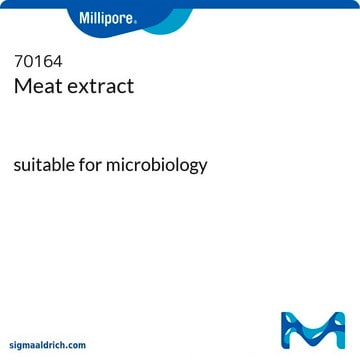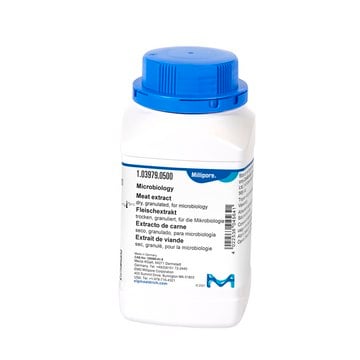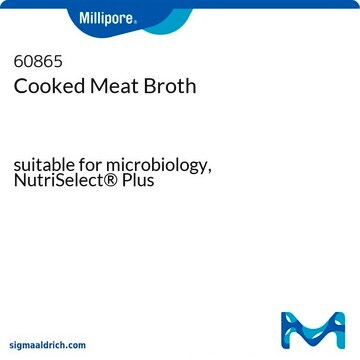B4888
Beef extract powder
suitable for microbiology, dehydrated extract of bovine tissue used in the preparation of microbiological culture media
Synonym(s):
Meat extract
About This Item
Recommended Products
biological source
bovine skeletal muscle
Quality Level
sterility
non-sterile
form
powder
nitrogen analysis
~12% total
impurities
<9% sodium chloride
loss
≤7% loss on drying
color
yellow-brown
pH
6.5-7.5
solubility
H2O: soluble
application(s)
food and beverages
microbiology
Related Categories
General description
Application
related product
Storage Class Code
11 - Combustible Solids
WGK
WGK 3
Flash Point(F)
Not applicable
Flash Point(C)
Not applicable
Personal Protective Equipment
Choose from one of the most recent versions:
Certificates of Analysis (COA)
Don't see the Right Version?
If you require a particular version, you can look up a specific certificate by the Lot or Batch number.
Already Own This Product?
Find documentation for the products that you have recently purchased in the Document Library.
Customers Also Viewed
Articles
Culture media provides a habitat with suitable nutrients, energy sources, and certain environmental conditions for the growth of microorganisms. The components of the culture media range from simple sugars to peptones, salts, antibiotics, and complex indicators.
Our team of scientists has experience in all areas of research including Life Science, Material Science, Chemical Synthesis, Chromatography, Analytical and many others.
Contact Technical Service














